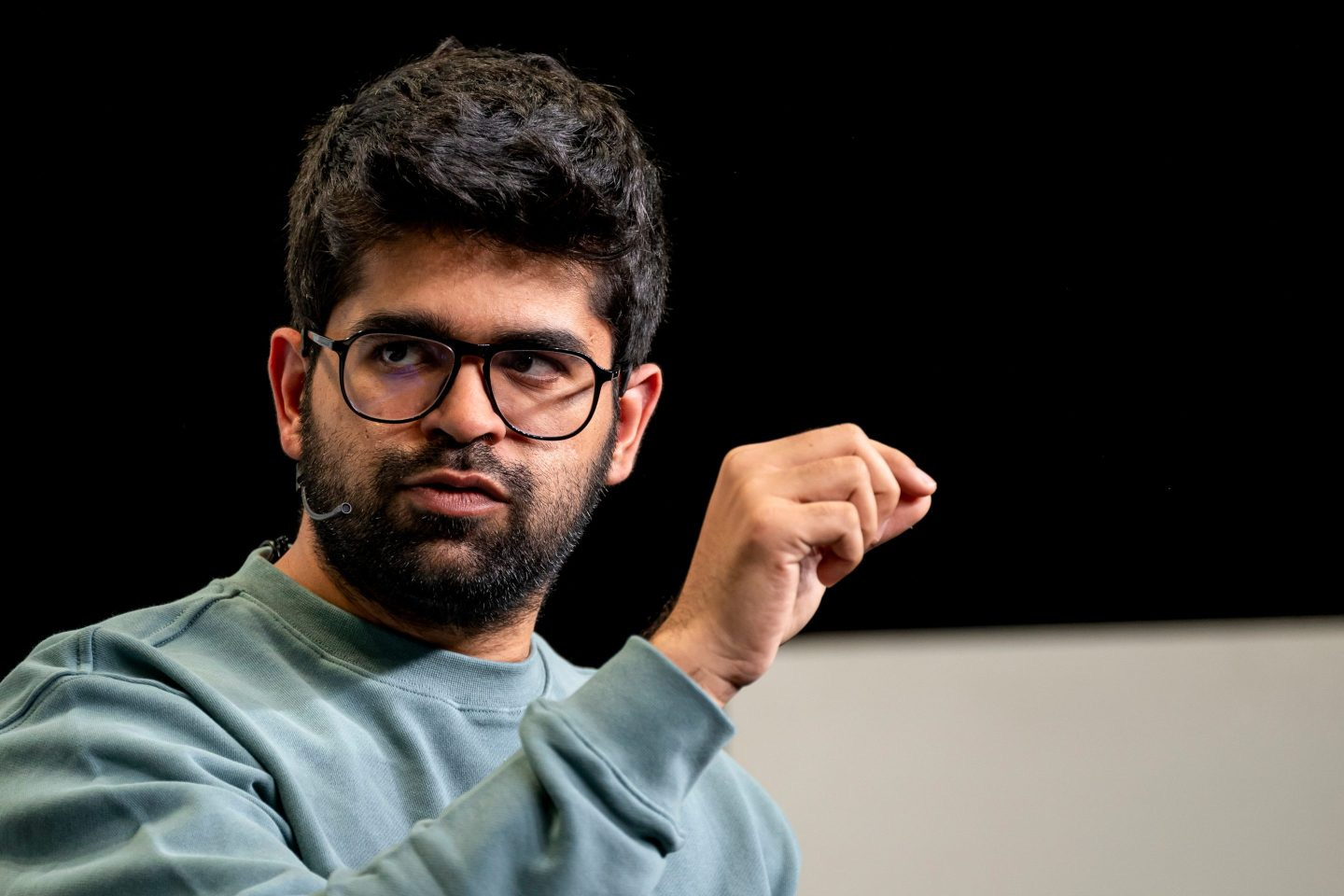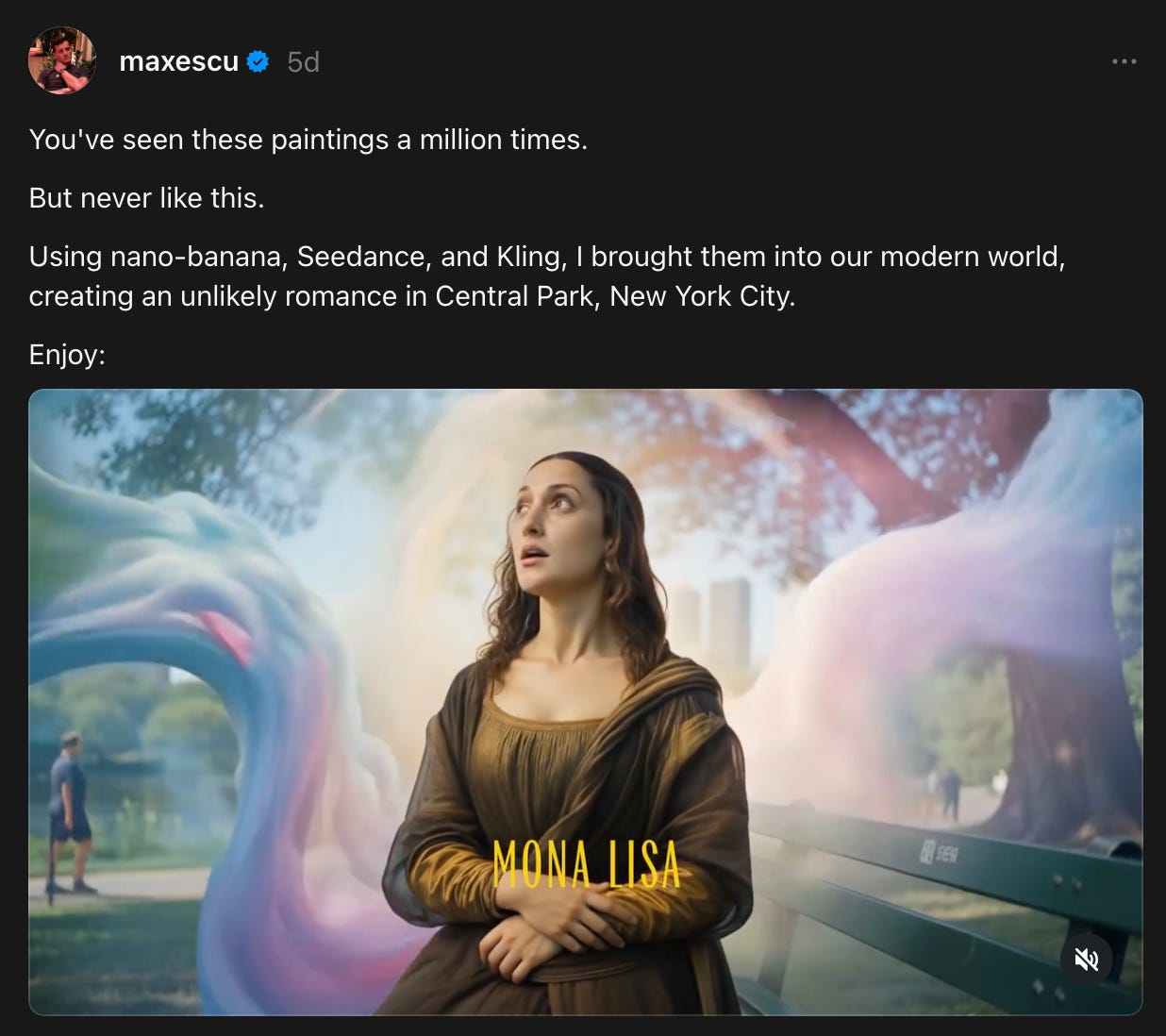No One is Buying Google Chrome
Another win for the "nothing ever happens" community
Also in this edition: OpenAI starts acting like a boring tech company, Bumble wants to give you an AI matchmaker, making Grok racist is harder than expected, and more thoughts on video slop.
Google Won’t Be Selling Chrome
Last year, in an anti-trust case brought by the Department of Justice, a judge concluded that Google held an illegal monopoly in the online search market. At the time, it was unclear what subsequent actions the company would be forced to take, and there’s been an ongoing possibility that Google could be ordered to sell the Chrome browser or give up ownership of the Android operating system.
But yesterday, a judge ruled that the government went too far when it sought those outcomes, and that in fact none of those things would be happening. According to the ruling, “Google will not be required to divest Chrome; nor will the court include a contingent divestiture of the Android operating system in the final judgment […] Plaintiffs overreached in seeking forced divestiture of these key assets, which Google did not use to effect any illegal restraints.”
The company will have to share some of their search data (not ads data) with other tech companies, but they’ll only have to share it once rather than on an ongoing basis. Google will also be allowed to keep paying Apple and others billions of dollars to receive their search traffic, so long as Google isn’t paying to be the exclusive default search option on their platforms. If Google had been entirely prevented from making these deals, it actually would have damaged the other companies involved much more than Google, as MG Siegler notes:
Not having to pay Apple or Mozilla or others for the search traffic they were naturally going to be sending anyway regardless of the placement would have been a huge win for... Google. This is a huge win for Apple, but perhaps even more so for Mozilla, which may very well have died without any sort of traffic acquisition payments from Google.
For much of the past decade, it really did look near-impossible for someone to break Google’s chokehold on web search. But the rise of AI has completely upended the playing field, which is something that the judge noted in his decision, stating “Today, established technology companies are making, and start-ups are receiving, hundreds of billions of dollars in capital to develop GenAI products that pose a threat to the primacy of traditional internet search.”
Google keeps pretending that AI won’t stop people from clicking on search results (and then clicking ads on the websites those results link to). This is a good thing to say if you don’t want the people who use your advertising product to stop paying you money. But much of the court’s decision here demonstrates that no one actually believes Google (including its own product teams). We’re getting a new internet whether we want one or not.
OpenAI Is in Its Trad Era
OpenAI made two big announcements yesterday:
The company will soon start routing “sensitive moments” in ChatGPT conversations to reasoning models, and roll out a suite of parental controls sometime within the next month.
They are acquiring Statsig, an “experimentation platform” (they make software that lets you do A/B tests), for over $1 billion, and giving its CEO, Vijaye Raji, the title CTO of Applications.
The first announcement, though it doesn’t really acknowledge it, is surely a response to the many, many recent stories about people whose mental health crises were basically worsened through their conversations with ChatGPT. It’s a standard, bland response, and reminiscent of how Facebook tries to periodically convince everyone that contrary to pretty much every study ever it’s making teenage girls feel so much better about how they look actually.
The second announcement feels much more surprising. OpenAI has made a handful of acquisitions, but a billion dollars (or 1/6th of a Jony Ive) is a lot to spend on what is essentially configuration management software.
In tandem these updates feel like a sign of maturity, of a slowing growth curve. They feel like the behavior of traditional tech companies when they hit scale—responding to PR crises about how your software was “misused” in ways you probably saw coming, and starting to rely much more on quantitative tools to make product decisions rather than technological innovation or the product instincts of your leaders. OpenAI says that one of the reasons GPT-5 is groundbreaking is because it uses AI to intelligently route queries to different models. But that’s what Statsig provides—feature gates that route different users to different experiences. If you’re on the verge of building a revolutionary system that can intelligently self-optimize, you don’t spend a billion on the legacy version.
Meanwhile, Anthropic raised a $13 billion Series F.
Good Slop, Bad Slop
I’m closing this one out with two very different AI slop videos that were making the rounds over the weekend. The first is a glossy montage of fruit cannibalism:
The second is, uh, something else:
There’s something undeniably satisfying to my lizard brain about the first one, and I can only assume that the latter is what Leonardo da Vinci and Vermeer would have created if they were lucky enough to have access to beautifully named technologies like “Seedance” and “Kling” back in their time. Sad that they never lived to see their true visions realized.
I’m sharing these not to turn this letter into your mom’s Facebook feed, but because I think they do a good job of approximating the two kinds of content that dominate all of our platforms right now—in the first instance, brain-smoothing dopamine IV drip ASMR, and in the second, pure rage bait (the top comment as I write this is “However much hate you’re getting for this it isn’t enough”). Is the first one so different from watching someone eat Dubai chocolate over and over? The main difference I can see is that the AI video isn’t selling anything, but plenty of well-funded companies are working hard on “solving” that.
AI doesn’t have to be able to make a Netflix movie to start dominating the stream of content we consume. It just has to reach the quality of an average post, and the average post is, well, average. It’s not good. We barely even watch full videos on TikTok; we take in a few half-distracted seconds before flicking on to the next, not so much consuming the videos as consuming the Algorithm itself. If an AI generated half the videos in your feed, would you notice? And if the dopamine and outrage dials stayed right where they are, then more importantly, would you even care?
Doomscrolls
[Pop Crave voice] Luigi Mangione stuns for Shein. The listing was sadly removed, and there’s no word yet on how many “Men's New Spring/Summer Short Sleeve Blue Ditsy Floral White Shirt, Pastoral Style Gentleman Shirt For Everyday Wear, Family Matching Mommy And Me” were sold.
Bumble is releasing a separate, “AI matchmaker”-powered app this fall. I do think one of the (many) issues with dating apps is the whole stated vs revealed preferences thing that Whitney Wolfe Herd talks about solving here, but it’s more than a little Black Mirror.
The Times tracked Elon’s continued efforts to make Grok right-wing, and it’s honestly very funny to see the AI consistently drift back to more left-wing views despite Elon’s many public, bumbling manipulations.
Alibaba, the Chinese tech giant, is making its own AI chips. This is not great news for Nvidia, whose sales in China plummeted after their recent trade agreement with the Trump administration. The art of the deal.
Taco Bell is rolling back their AI drive-through assistant after people started putting in orders for things like 18,000 cups of water. According to their Chief Digital and Technology Officer, “We’re learning a lot.”
A Good Reason to Stay Alive
All em dashes added organically by me. All typos are because I spilled niche fruit juice on my keyboard and it got sticky.
Thanks for reading. If you enjoyed this post, please share it with a friend.






